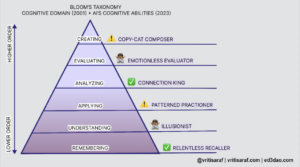World Ed No Longer a Trend but a Reality
If you had been waiting for the day that a truly global education would be more than a gleam in the eye of the more internationally savvy student, you missed that moment. According to the New York Times reporter D.D. Guttenplan, world education traffic has picked up so much it has bested America as the world’s top destination for education. Okay, that sounds confusing, so what does it mean?
For decades the United States attracted more than a quarter of all foreign students in college or graduate education. Recently that has begun to change. While the continuing boom in study overseas — an explosion largely unaffected by the economic downturn — means that the number of foreign students going to the United States has continued to grow, the U.S. share of the foreign student market has fallen to just 18.7 percent, according to the most recent report by the Organization for Economic Co-operation and Development. Meanwhile countries like Australia, Russia and New Zealand have all seen their share of the market rise sharply.
But behind the numbers and the winners and losers lies a more complex story of a rapidly changing international landscape in which the old pattern of a “brain drain,” in which rich countries skim off the talent from the rest of the world, is giving way to a “brain exchange,” in which students complete part of their education at home and part abroad, often working overseas as well before ultimately returning home.
The interesting “bias” in this story is that it seems to leave out online institutions that are already global but are “based” in America. Look at the for-profit education providers like Phoenix and DeVry. They can already boost significant numbers of students studying math, science and engineering in countries as far away as Guyana, Guam, Botswana, and any number of European countries. And you can also think about what providers University of the People, launched by Shai Reshef. That online project has many, many students from international bases.
Education trends aside, it’s always hard for the current media to focus and create a story about a somewhat “niche” area, especially in education. Education is far more fragmentary and complex than a news story can do it justice. And there are so many new things that often telling the mainlined stereotypical story will keep the reporter from seeing the deeper picture.







0 Comments
Leave a Comment
Your email address will not be published. All fields are required.